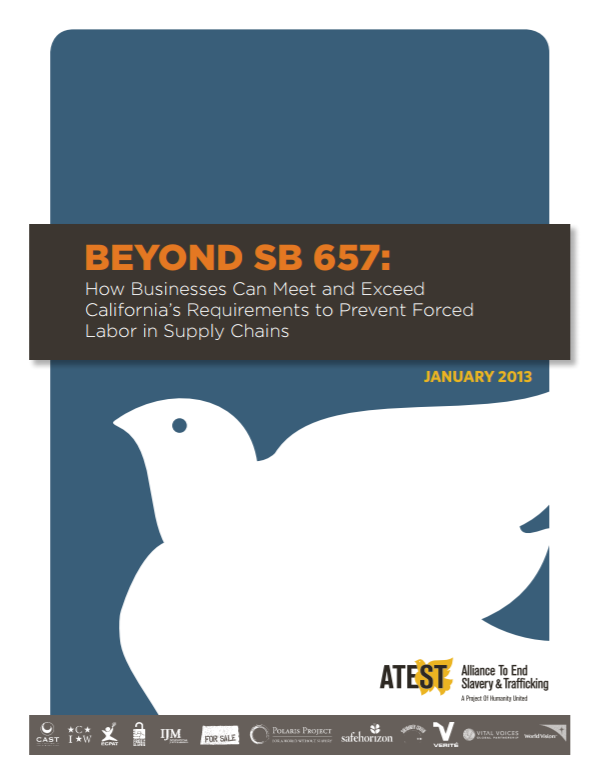California Transparency in Supply Chains Act
The California Transparency in Supply Chains Act, which was signed into law in October 2010 and went into effect in January 2012, requires certain companies to report on their specific actions to eradicate slavery and human trafficking in their supply...

